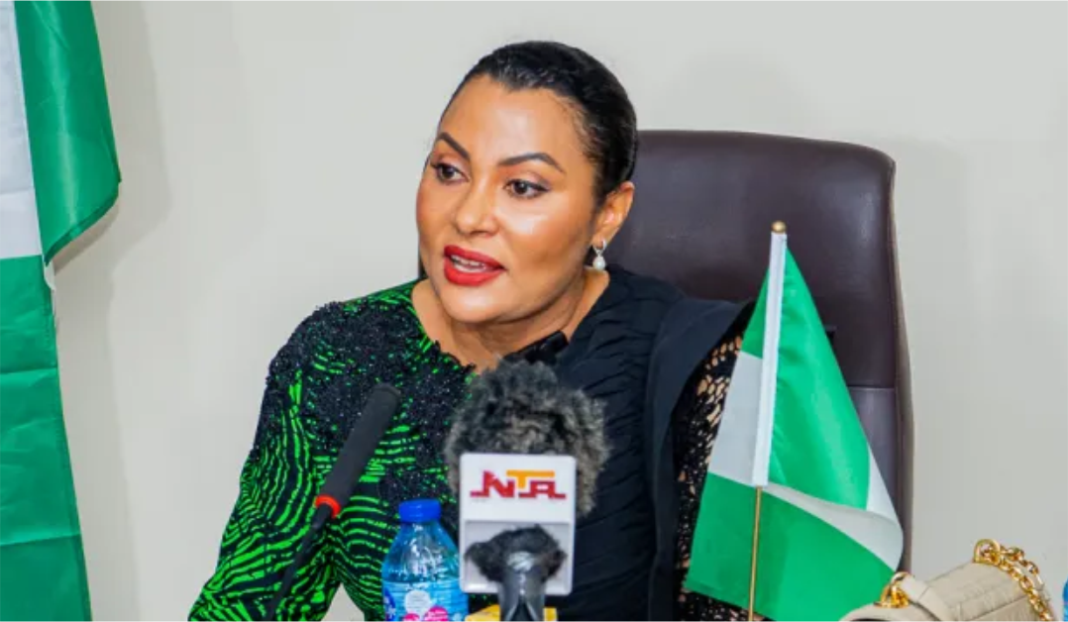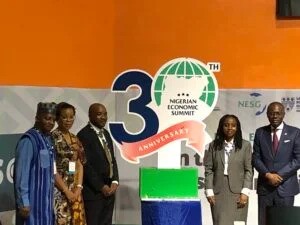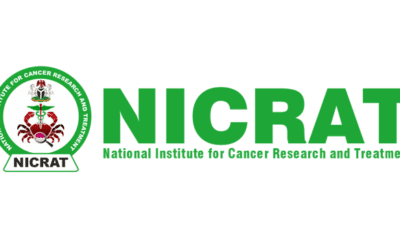News
Nigeria lost $5.6bn to cancer in 2019 — Report
The Lancet Oncology Commission report says Nigeria lost about 5.9 billion dollars to cancer deaths and other cancer-related factors in 2019.
The Chairman, Lancet Oncology Commission for Sub-Saharan Africa, Prof. Wil Ngwa, said this on Wednesday in Abuja at the public presentation of the report titled: “Lancet Oncology Commission: Cancer in Sub-Saharan Africa.”
While presenting the highlights of the report, he said that cancer was greatly impacting economies in the region with Algeria losing 2.6 billion dollars, Angola 1.2 billion dollars, Benin 209.2 million dollars, Botswana 500.6 million dollars and Burkina Faso 270.6 million dollars to the disease.
Ngwa said that cancer killed more than COVID-19 in 2021 in Africa and had caused more than 28,000 children’s death in the region in 2020.
He added that as a result of COVID-19, it was estimated that there would be one million deaths per year by 2030 due to cancer in Africa.
Ngwa also said that the continent must address cancer with equal urgency, as it did with COVID-19.
He also said that the challenge of cancer now faced by Sub-Saharan Africa (SSA) was enormous and likely to worsen rapidly if adequate measures were not taken including international collaboration.
Ngwa, however, said that cancer in Africa was characterised by late stage at presentation, delayed diagnosis, limited access to treatment, and poor outcomes relative to other geographic regions
Former Minister of Health, Prof. Isaac Adewole, said that there were various interventions by the Federal Government to reduce the burden of the disease in Nigeria.
He, however, said that what was most important was political action and not just political will.
“The National Health Insurance Authority (NHIA) provides health insurance to all Nigerians and cancer screening is one of the key deliverables in that document.
“So, Nigeria is likely to become one of the first countries in Africa to have cancer screening covered by health insurance.
“What we now need to do moving forward is to go on with the idea of revitalising the eight cancer centres in Nigeria.
“Things are moving up but we need to scale them up because we have more than 200 million people, so we need to improve on access, care and funding.”
He added that the Cancer Health Fund was a unique innovation where people with cancer were now supported financially.
As for the region, he said that actionable plans that should be explored includes precision cancer control improving, improvement of data acquisition and cancer registration, designing health-care systems that promote equity of access and increase of cure and care improvement.
Others are effective palliation as an integral and key part of cancer care, building and maintains ace of workforce, innovation and research and identification of barriers to implement and test strategies.
This is for the adoption and scale-up of recommended approaches that can substantially increase access to cancer prevention and treatment and increase survival.
The Editor-In-Chief, Lancet Oncology Commission, Prof. David Collingridge, said that the constant long suffering and mortality driven by infectious diseases, malnutrition and poor maternal and child health in Africa was now being affected by the growing incidence of cancer and other Non-Communicable Diseases (NCDs).
Collingridge said that the double burden of disease was a consequence of lifestyle and behavioural changes and a shift in the patient population demographics to an ageing population.
“The health of the people in this part of the world where fragile health systems are under financed, under resourced and understaffed needs to be a global concern and needs to change,” he said.
He, however, said that the report advocates skin cancer research and increase in the use of telemedicine and other new technologies.
According to him, the report emphasises the importance of implementation research in clinical care pathways and enhanced service delivery.
Collingridge said, “In terms of financing, the commissioners suggests that financing should be initially prioritised for the most cost-effective measures.
“Cost-effective measures such as vaccines for prevention of preventable cancers, more affordable treatments that affect the greatest clinical cost benefit ratios.
“They recommend that transparent and dedicated revenue stream should be established with the input from international collaborators as needed to finance these specific measures.”
Collingridge said that each nation across Africa would need to adapt the recommendations to suit their specific situation, adding that with political determination and a coordinated approach across the region and the world, improved cancer care was achievable.
The commission was created to inquire into, describe and analyse the state of cancer in Sub-Saharan Africa and recommend key actions to address the growing challenge.
It brought together experts on all aspects of cancer control from Africa and around the world.
News
Application deadline for management of Nigeria’s $10bn Diaspora Fund extended


The Nigerian federal government has shifted the application deadline for companies interested in managing the $10 billion Diaspora Fund.
Minister of the Federal Ministry of Industry, Trade and Investment, Doris Uzoka-Anite, disclosed this in a circular on Thursday in Abuja.
Accordingly, the deadline for May 6 has been shifted to May 13, 2024.
The minister urged prospective applicants to utilise the extra time to complete their submissions, ensuring they are thorough and competitive.
She stressed that the extension is designed to allow stakeholders additional time to adequately prepare their applications following the guidelines established for the fund.
“The Federal Ministry of Industry, Trade, and Investment wishes to inform all interested parties that the deadline for the submission of Expressions of Interest (EOI) for the Nigeria Diaspora Fund has been extended.
“The new submission deadline is May 13, 2024. This extension is intended to accommodate stakeholders who require more time to prepare their applications by the guidelines provided for the $10 billion Nigeria Diaspora Fund,” she stated.
News
Sanwo-Olu, NESG harp on PPP for economic growth


Gov. Babajide Sanwo-Olu of Lagos State has emphasised the role of public-private sector partnerships in driving accelerated sustainable economic growth in Nigeria.
He made the remark at the Nigerian Economic Summit Group (NESG) Public Lecture and Founders’ Forum held at the Lagos Business School on Thursday.
The event, which marked the official launch of the 30th anniversary of the Nigerian Economic Summit (NES) has the theme: “In the National Interest: Reflecting on the Past, Reimagining the Future.”
Sanwo-Olu said it was imperative that the public sector improved on its synergy with various actors pursuing a collective agenda of service for the citizens.
The governor highlighted the significant role the NESG plays in bringing together public and private sector leaders in the country in an ongoing dialogue to shape, influence and create a thriving competitive and successful economy.
“We’re not where we should be and we must continue to set goals to inspire ourselves to do better as a nation
“We may not always achieve our targets for our vision timelines, but that should not be an excuse for not trying,” he said.
He commended the NESG for its various interventions such as the flagship annual summit, roundtable and sectorial policy commissions, technical support work and policy innovation centre.
He, however, urged NESG to explore ways of deepening linkage between policy work and public consciousness that allows engagement with the citizenry.
Delivering the lecture, Mrs Ifueko Omoigui-Okauru, Managing Partner, Compliance Professionals PLC, said that while there had been significant economic changes, more needed to be done to ensure accelerated economic growth.
Omoigui-Okauru said that there was need to build inclusive policies that reflect the realities of the nation rather than imposing replicas of other countries.
“In 30 years, we may have made some progress, but we can’t say we have radically transformed Nigeria.
“As we reflect on the NESG, there’s still a lot to be done in bridging the rural-urban divide and have an inclusive agenda.
“We see our journey as work in progress. We need to determine the parameters that would drive our success and put policies in place to move us in the direction where we need to be.
“It is important for us to move away from self interest, think of ways to use technology and other frameworks to collectively achieve the Nigeria of our dreams,” she said.
Earlier in his opening remarks, Mr Niyi Yusuf, Chairman, NESG, said the 30th Summit reaffirmed the essentiality of public-private partnerships in tackling complex economic realities.
Yusuf, however, said that the journey to embracing market mechanisms has not been without its challenges.
He reiterated unwavering commitment in driving reforms through rigorous research, economic and social programmes, and inclusive summits, all aimed at shaping the socio-economic development of our nation.
“Thirty years ago, at a critical juncture in our nation’s history, the NES was born out of a necessity when the winds of economic challenges blew fiercely, necessitating a platform for robust public-private dialogue.
“Since our inaugural summit in 1993, the NES has been a progressive economic discourse rooted deeply in collaborative efforts between government leaders and private sector visionaries.
“Each Summit has crafted policies and strategies essential for removing barriers to competitiveness, growth, and inclusive development.
“Therefore, in commemorating this 30th anniversary, it is essential to assess and discuss the role of this public-private dialogue platform in Nigeria’s socio-economic landscape to provide us insights for future engagements,” he said.
The chairman assured collaborative efforts with the three arms of federal and subnational governments and private sector communities to propel Nigeria towards a more resilient, inclusive and prosperous future.
Dr Pascal Dozie, Chairman, NESG Advisory Board, listed political, economic, education and environment sectors as pathways to reimagining Nigeria’s future
Dozie, also pioneer Chairman of NESG Board of Directors, was represented by Mr Frank Aigbogun, Chief Executive Officer of BusinessDay.
He charged NESG to adopt new strategies in providing collaborative leadership in seeking answers to the following crucial questions.
“How do we strengthen democratic institutions and rule of law, foster culture of inclusiveness and representation?
“How do we promote transparency and accountability in governance and inculcate the culture of consequences for bad behaviour in every sphere of life?
“In economic reimagining, how do we diversify Nigeria’s economy, reduce dependence on oil, foster a business friendly environment and develop the much needed infrastructure base in a coordinated nationwide approach?
“How do we repurpose the educational system to focus on science, technology, engineering and mathematics, encourage technology entrepreneurship and innovation and address unemployment?
“For the environment, how can we develop sustainable agriculture and food security, promote sustainable practices, renewable energy and eco tourism?
“It is imperative that the NESG community leads from the front in not only providing actionable answers to these questions but also making sacrifices to ensure they are implemented,” he said.
Similarly, Chief Executive Officer of NESG, Dr Tayo Aduloju, said that strong institutions, political will, accountability by all stakeholders and the willingness for the government to allow private sector to drive growth were factors needed for a successful economic development.
“The challenge for us today is how to drive the country forward over the next 30 years in a way that is not just growth but growth that creates jobs and opportunities for everyone and no one is left behind.
“We are dealing with a country that is going through macro-economic volatility and instability.
“So, the lessons here at the forum are deep reflections of what should change in our approach, a stronger priority on execution, a deeper commitment on accountability of government systems to deliver and how economic barometers impact the ordinary man on the street.
“Our resilience to hold government accountable, to keep insisting that there must be an economy that works for all Nigerians, rule of law, an environment in which free enterprise is practiced, is what we must continue to fight for,” he added.
News
NCS FoU Zone ‘B’ Nabs Fake Customs Officer


-
capital market2 years ago
Rt.briscoe, FBNH, Others halts negative performance of stock market
-
Finance3 months ago
Court orders Sen. Victor Umeh to repay N136m bank debt to AMCON
-



 Abuja Update2 months ago
Abuja Update2 months agoUNDP, FG partnership needed to achieve inclusion, equity- Minister
-
Abuja Update1 month ago
Banks drive stock market performance with N147bn gain
-



 Business1 week ago
Business1 week agoTingo Group unveils Tingo Electric, Tingo Cola drink at Lagos launch
-



 Health2 weeks ago
Health2 weeks agoCapacity training will reduce migration of health workers- NPHCDA
-
News4 months ago
Oil thieves sponsoring malicious media campaign against Navy – Spokesman
-



 Infotech1 month ago
Infotech1 month agoWorld Backup Day: NITDA urges Nigerians to ensure backup of data






